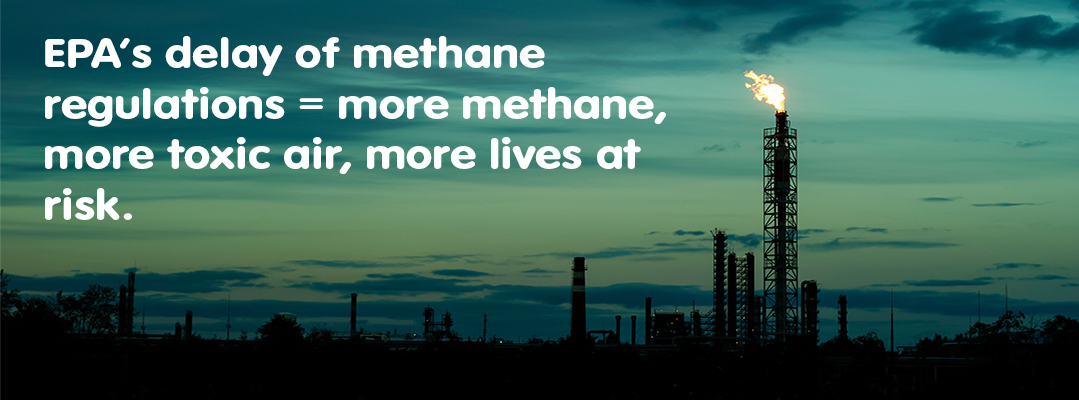Faith Demands Action, Not Delay, on Methane Pollution
At New Mexico Interfaith Power & Light, we believe that caring for creation is a moral and spiritual responsibility. That’s why we lift up the voices of people of faith who speak truth to power, calling for urgent action to protect our communities, our sacred lands, and our future.
This week, our Board Chair Ruth Striegel delivered a powerful public comment before the EPA regarding its decision to delay implementation of methane emission standards for oil and gas operations. Ruth shared both the lived reality of climate change in New Mexico—the Rio Grande drying up, record heat, worsening health impacts—and the staggering consequences of allowing millions of tons of methane and other pollutants to enter our atmosphere.
Her testimony is a reminder that delaying climate action comes with devastating costs—economic, environmental, and moral.
Below, we share her full comment.
Thank you for the opportunity to speak on this important issue. My name is Ruth Striegel and I live in Albuquerque, New Mexico. I chair the board of directors of New Mexico/El Paso Region Interfaith Power and Light. We believe that care of creation is integral to spiritual life and service.
I am deeply concerned about our warming world. I live just a few miles from the Rio Grande, the river that Spanish explorers called “the great river,” which dried out entirely in the Albuquerque stretch this summer for the second time. I can’t adequately express what it feels like to see that dry river bed, to understand that we are now entirely dependent on our shrinking supply of groundwater, that the fish in the river have died, and that the plants and animals that depend on the river’s water are in danger of dying, too. Our summers are longer and hotter, our winters are shorter and warmer, temperature swings more erratic and damaging.
The Interim Final Rule Fact Sheet includes an economic impact statement that highlights the cost savings to industry. It also states that by delaying compliance deadlines the oil and gas industry will release an extra 3.8 million tons of methane, nine hundred sixty thousand tons of volatile organic compounds, and 36,000 tons of toxic air pollutant. That’s a staggering amount! 3.8 million tons of methane, which is 80 times more effective at warming our planet and causing planetary collapse than carbon dioxide. Nine hundred sixty thousand tons of volatile organic compounds, which react with sunlight to form ozone pollution. You know, in most parts of the country, smog is caused by vehicle emissions. In New Mexico, it’s caused primarily by the oil and gas industry.
The EPA fact sheet economic impact statement leaves out a lot of really important economic impacts. People living in areas where natural gas is being released get sick a lot more frequently. That toxic mix causes thyroid cancer, lung cancer, COPD and asthma. People miss work, their health care costs go up, their quality-of-life decreases. What is the economic impact of that?
Methane released into the atmosphere contributes to climate change. What is the economic impact of coastal cities dealing with repeated urban flooding? Of communities dealing with the damage and loss of life from hurricanes, floods, and fires? The impact of releasing these gases into our atmosphere is much broader than the fact sheet would suggest. The EPA needs to widen the lens through which impact is measured.
The cost of delaying the implementation of these standards is just too great. It makes no sense, economically or morally. I urge you to move forward with the standards as originally planned.



